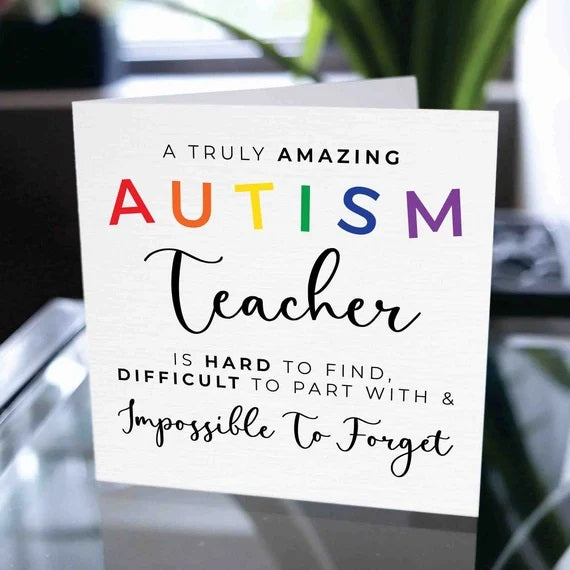!Interview with Autism Educator: Jessie

Background about Jessie
Hi, my name is Jessie. I am a teacher of Autistic children in Ireland. I have been working in the area of autism education for 11 years now and have worked with children of all ages and abilities. You can find more information about me and the work that I do at www.inspiredbyautism.org or on Instagram @inspired_by_autism.
Q: What are some things you recommend parents use for helping kids stay calm during school hours?

A: Our students are very visual learners. Visual supports act as a constant for our students in a busy classroom where things are constantly changing and moving. Using visual supports such as visual schedules, first then boards, visual expectations, etc. allows predictability and a sense of control for our students which in turn reduces anxiety and frustration and leads to happier students and a calmer classroom.
Fidget and sensory toys can also help our students to regulate their bodies which in turn will help them to attend and participate in everyday school activities. Materials such as fidget poppers, Thera putty, gym balls, and mini exercise trampolines can be very helpful.
I would recommend that each child has their own ‘Calm down tool kit’. You can see these on my website. Basically, they will have their own kit – basket or bag of supplies that we and they know helps them to regulate when they are feeling upset or dysregulated. Students should have access to these whenever they need them.
Shop some of Parker and Talia's fidget accessories here.
What are some ways I can set my child up for success in the morning before school?

Get up on time. Don’t rush your child, wake them early and get them moving. Some children find alarm clocks a helpful signal. Set your child’s alarm clock to some gentle music or their preferred songs to wake them. Allow a few minutes before they need to get moving. Have a set morning routine and represent this visually for your child, either through pictures or (if they can read) a written list of the steps. Encourage breakfast – their safe foods, I wouldn’t recommend morning time being a time to try new foods. Give them what the find safe or comforting in the morning. If possible, and/or if they have an OT program, do some OT exercises with them before school or get them outside for some fresh air. Use a visual timer or to let them know and give them warning of when it will be time to go. Remind them “we’re leaving in 5 minutes”, etc. If your child has a home/school diary, put in a short note of how their sleep and their morning has been. Knowing if your child has slept well, eaten this morning or had a tough start to the day will allow their teachers to set them up for success by adjusting their expectations.
Why is a plan and no surprises important for autistic children?

Autistic people like sameness. They like routine and order. They usually like structure and like things to stay the same. This gives a sense of calm and order to their day. Having a plan in place allows our children to predict how their day will go. This is important for many autistic children because in a lot of ways they don’t have control over activities, their environment, etc. in school. Giving them control and order by knowing how their day will run can reduce anxiety for our children.
Why is sensory regulation so important? What are daily things parents can do to help with this?

So, there are two types of sensory systems; hypersensitive – those who are extra sensitive to noise, light, touch, etc. and hyposensitive – individuals who are under sensitive to these stimuli. In order to get through a day in a busy classroom, our students need strategies and supports to regulate their bodies.
Some things that parents can do for their children are provide them with ear defenders, invest in Occupational therapy and incorporate it into your daily routine, find what it is that regulates your child and make it part of your and their everyday life. It will be different for every child – some children might find music regulating, whilst music might be triggering for another student.
Tips on getting Autistic kids to try new foods?

The first important step is to recognize that certain foods, textures, tastes, and smells can be triggering and almost painful for autistic children. We of course want to encourage new foods and a broader range of foods, but we have to do this carefully and without any pressure. Start by using food for play and activities with no expectations. Involve your child in cooking, baking, chopping fruit, play with food such as spaghetti, etc. During these activities your child should not be expected or asked to try any foods. Once your child is comfortable touching and exploring with these foods, you can begin modelling eating the foods during play/cooking. Again, this should be done in a non-confrontational way. Do it naturally, don’t let your child think that you are expecting them to try it too. Then gradually bring these foods to the dinner table. Model eating them in front of your child. Eventually you might offer them to your child on a separate plate or small bowl beside their plate. Don’t make a big deal of it.
Start with foods that are similar in texture or color to their preferred foods!
Questions, concerns, or comments on this interview? please get in touch!

